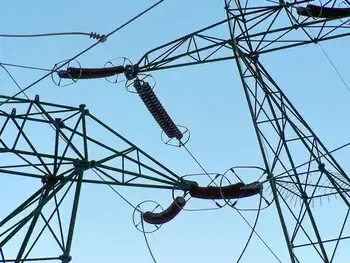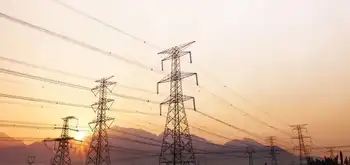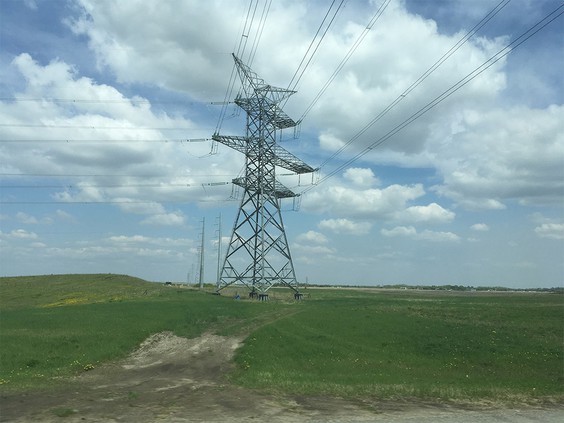Ukraine Leans on Imports to Keep the Lights On

Protective Relay Training - Basic
Our customized live online or in‑person group training can be delivered to your staff at your location.

- Live Online
- 12 hours Instructor-led
- Group Training Available
Ukraine Electricity Imports surge to record levels as EU neighbors bolster grid stability amid Russian strikes, supporting energy security, preventing blackouts, and straining cross-border transmission capacity while Ukraine rebuilds damaged infrastructure and diversifies with renewables.
Key Points
Emergency EU power purchases stabilizing Ukraine’s grid after war damage.
✅ Record 19,000 MWh per day from EU interconnectors
✅ Supports grid stability and blackout prevention
✅ Cost and transmission upgrades challenge sustainability
Russia's ongoing war in Ukraine has extended far beyond the battlefield, with critical infrastructure becoming a target. Ukraine's once-robust energy system has sustained significant damage amid energy ceasefire violations and Russian missile and drone strikes. To cope with these disruptions and maintain power supplies for Ukrainian citizens, the country is turning to record-breaking electricity imports from neighboring European nations.
Prior to the war, Ukraine enjoyed a self-sufficient energy sector, even exporting electricity to neighboring countries. However, targeted attacks on power plants and transmission lines have crippled generation capacity. The situation is particularly dire in eastern and southern Ukraine, where ongoing fighting has caused extensive damage.
Faced with this energy crisis, Ukraine is looking to Europe for a lifeline. The country's energy ministry has announced plans to import a staggering amount of electricity – exceeding 19,000 megawatt-hours (MWh) per day – to prepare for winter and stabilize supplies. This surpasses the previous record set in March 2024 and represents a significant increase in Ukraine's reliance on external power sources.
Several European nations are stepping up to support Ukraine. Countries like Poland, Slovakia, Romania, Hungary, which maintains quiet energy ties with Russia today, and Moldova have agreed to provide emergency electricity supplies. These imports will help stabilize Ukraine's power grid and prevent widespread blackouts, especially during peak consumption hours.
The reliance on imports, however, presents its own set of challenges. Firstly, the sheer volume of electricity needed puts a strain on the capacity of neighboring grids. Upgrading and expanding transmission infrastructure will be crucial to ensure a smooth flow of electricity. Secondly, the cost of imported electricity can be higher than domestically generated power amid price hikes and instability globally, placing additional pressure on Ukraine's already strained finances.
Beyond these immediate concerns, the long-term implications of relying on external energy sources need to be considered. Ukraine's long-term goal is to rebuild its own energy infrastructure and regain energy independence. International assistance, including energy security support measures, will be crucial in this endeavor. Financial aid and technical expertise can help Ukraine repair damaged power plants, diversify its energy mix through further investment in renewables, and develop more resilient grid infrastructure.
The war in Ukraine has underscored the importance of energy security. A nation's dependence on a single source of energy, be it domestic or foreign, leaves it vulnerable to disruption, as others consider national security and fossil fuels in their own policies. For Ukraine, diversification and building a more resilient energy infrastructure are key takeaways from this crisis.
The international community also has a role to play. Supporting Ukraine's energy sector not only helps the nation weather the current crisis but also strengthens European energy security as a whole, where concerns over Europe's energy nightmare remain pronounced. A stable and independent Ukraine, less reliant on Russian energy, contributes to a more secure and prosperous Europe.
As the war in Ukraine continues, the battle for energy security rages on. While the immediate focus is on keeping the lights on through imports, the long-term goal for Ukraine is to rebuild a stronger, more resilient energy sector that can power the nation's future. The international community's support will be crucial in helping Ukraine achieve this goal.











